
Global Properties
By Property Types
Hot Country
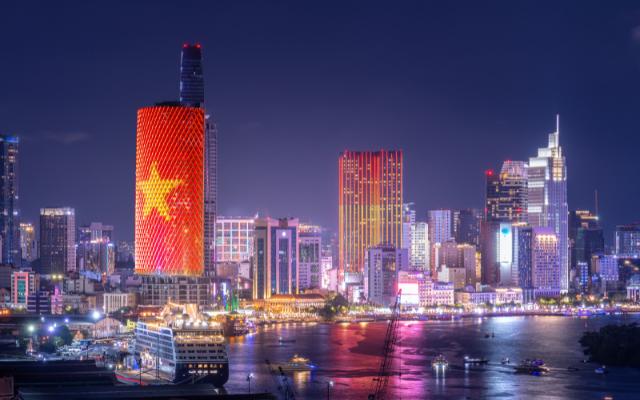
Dreaming of owning a stylish apartment in Ho Chi Minh City or a serene villa in Da Nang, but getting tangled in a web of confusing legal jargon?
You hear about 50-year leaseholds, "pink books," and shifting rules, and your dream starts to feel more like a headache.
It's a frustrating maze to navigate on one's own.
Don't worry. This guide cuts through the noise. We’ll walk you through the real process, step by step, with honest advice and clear examples.
You Lease, Not Own Land: Foreigners can own the building (the apartment or house) but not the land it sits on. This is typically achieved through a leasehold agreement, which is usually for a term of 50 years, with a provision for renewal.
Strict Ownership Caps: Foreign ownership is limited to 30% of units in a single apartment building and no more than 250 houses in a ward-level area, making some popular projects a race to get into.
The Process is Key: A successful purchase involves clear steps: thorough due diligence by a lawyer, signing a notarized Sales and Purchase Agreement (SPA), and registering for your ownership certificate (the "Pink Book").
Costs Add Up: Budget for more than just the ticket price. Expect to pay a Value Added Tax (VAT) of 5-10%, a 0.5% registration tax, and a 2% maintenance fee upfront for new projects.
Things You Need to Know Before Buying Vietnam Property
|
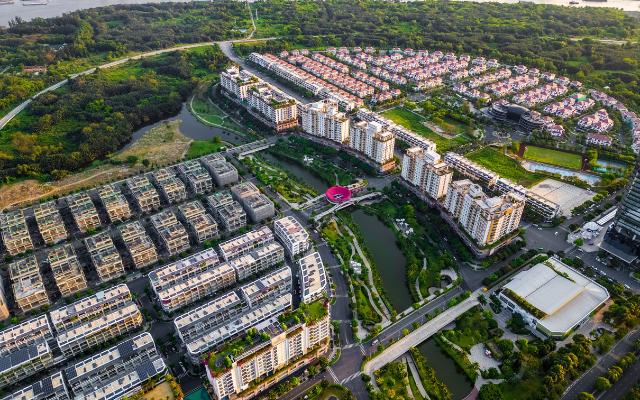
This is the most important question, and the answer requires a slight shift in thinking from the typical Western concept of "ownership."
You can own a building, real estate, or property in Vietnam, but NOT the land.
In Vietnam, all land is collectively owned by the people and managed by the state.
This means that no individual, not even a Vietnamese citizen, can own land in the way someone from the US or UK might.
Instead, you gain Land Use Rights.
As a foreigner, you purchase the building itself, and that purchase is tied to a leasehold on the land.
The critical document that proves ownership of the building is the Land Use Rights Certificate (LURC), commonly referred to as the "Pink Book" (Sổ Hồng).
This is your golden ticket.
It proves you are the legal owner of the apartment or house for the duration of the lease.
For foreign individuals, this lease is typically for 50 years and can be renewed once for another 50 years upon expiration.
Let's put it this way: imagine you're Sarah, a teacher from the UK.
When you buy a condo in Hanoi, you own the 'bricks and mortar' of your unit.
The government still owns the land underneath the entire building, and you and the other owners are leasing it.
The "pink book" is the official document that proves your ownership of the condo itself, which you can sell, gift, or inherit.
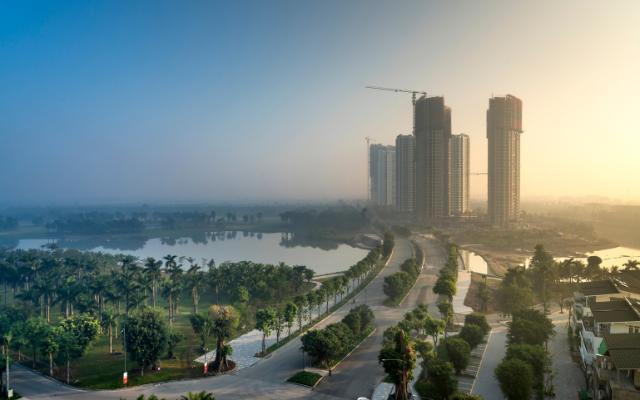
Now for a dose of reality.
Vietnam has opened its doors to foreign investors, but with clear boundaries in place to maintain market stability.
Think of it like getting tickets to a popular concert; there are only a limited number of seats available for international guests.
This is to ensure the local market remains balanced.
Therefore, if you fall in love with a specific new development, it's crucial to understand the foreign ownership restrictions in Vietnam and act before the quota is filled.
Here’s a simple breakdown of the main rules:
| Restriction Type | Limit for Foreigners |
| Apartment Building Ownership | Max 30% of total units |
| Landed House Ownership | Max 250 houses per ward (an administrative area of about 10,000 people) |
| Leasehold Duration | 50 years (with one potential 50-year renewal) |
| Prohibited Zones | Cannot buy in areas deemed vital to national defense and security |
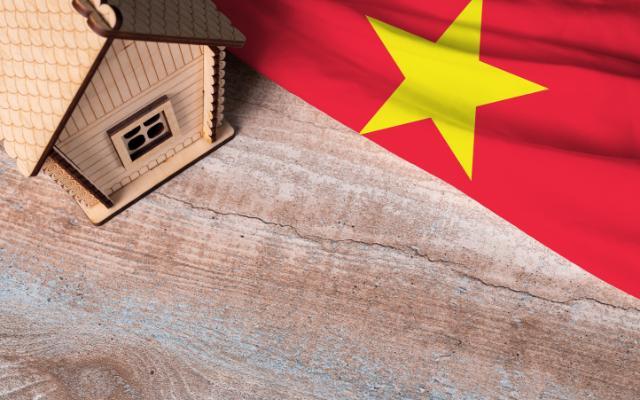
While the laws can seem complex, the process of buying property is quite structured.
Following these steps with professional help will protect your investment and make the journey much smoother.
Before you even look at listings, find an independent lawyer who is fluent in English and Vietnamese.
This is the most critical step.
As many experts advise, "To make sure you understand the process, protect your interests and avoid any pitfalls, it’s a good idea to find and appoint a solicitor."
Determine your budget and the method of financing the purchase.
Getting a mortgage in Vietnam as a non-resident can be challenging, though some international banks offer loans.
Many foreigners opt for cash purchases.
Use reputable online portals (like Batdongsan) or work with a trustworthy real estate agent like IQI Vietnam.
Ensure that any agent you use holds a proper real estate brokerage certificate, a new requirement introduced to improve standards.
This is your lawyer's time to shine.
They must verify the seller’s identity and the property's legal status, ensuring it has a clean ownership history and a valid Land Use Rights Certificate (LURC).
To take the property off the market, you’ll sign a reservation agreement and pay a small deposit.
For newly built properties, the law now limits this initial deposit to a maximum of 5%.
This is the legally binding contract.
It must be in Vietnamese (with an English translation), signed in front of a public notary, and clearly outline the price, payment schedule, and all other terms.
Payments are often made in installments according to the schedule in the SPA.
After the final payment, your lawyer will submit the documents to the Land Registration Office to officially transfer the "pink book" into your name.
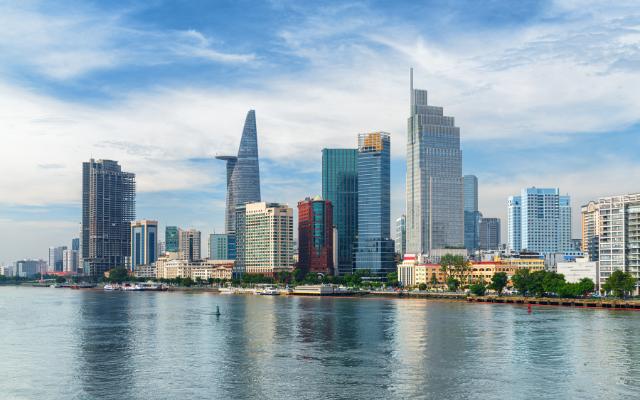
The final price you pay is always more than what’s on the listing.
Vietnam’s property prices are still considered more affordable than in many other parts of Asia, but you must budget for taxes and fees.
Property prices vary significantly by location.
Here’s a look at what you can expect in major cities, data as of July 2025:
| Location | Apartment (1BR) City Centre (Rent) | Apartment (1BR) Outside Centre (Rent) | Apartment (3BR) City Centre (Rent) | Apartment (3BR) Outside Centre (Rent) | Price/Sqm (Buy) City Centre (USD) | Price/Sqm (Buy) Outside Centre (USD) |
|---|---|---|---|---|---|---|
| Vietnam (Overall) | 360.18 (229.35-611.60) | 250.36 (152.90-420.47) | 808.06 (458.70-1,337.87) | 541.19 (344.02-955.62) | 3,038.39 (1,603.43-5,733.75) | 1,676.53 (1,070.30-2,675.75) |
| Hanoi | 339.87 (229.35-573.37) | 253.65 (152.90-344.02) | 808.76 (573.37-1,200.00) | 598.93 (458.70-955.62) | 3,262.20 (2,293.50-5,733.75) | 1,868.78 (1,337.87-3,058.00) |
| Ho Chi Minh City | 546.25 (382.25-764.50) | 306.12 (191.12-477.81) | 1,128.56 (764.50-1,529.00) | 677.77 (458.70-955.62) | 3,948.37 (2,484.62-7,645.00) | 1,918.53 (1,529.00-2,866.87) |
| Hoi An | 394.99 (267.57-649.82) | 336.38 (191.12-527.50) | 420.47 (382.25-458.70) | 445.96 (267.57-764.50) | 1,529.00 (1,529.00-1,529.00) | 955.62 (764.50-1,146.75) |
| Da Nang | 369.88 (267.57-520.00) | 263.62 (210.24-382.25) | 726.27 (573.37-879.17) | 496.92 (382.25-764.50) | 1,834.80 | 1,058.75 (955.62-1,161.88) |
| Hue | 130.43 (127.12-133.75) | 98.07 (96.50-99.64) | 511.86 (508.50-515.23) | 353.60 (353.53-353.66) | 1,485.89 (1,368.35-1,603.43) | 1,118.34 (1,038.75-1,197.93) |
Source: Numbeo
Beyond the purchase price, budget for these additional costs when you buy a house in Vietnam:
Value Added Tax (VAT): 10% on the purchase of new commercial properties.
Registration Tax: 0.5% of the property's value, paid by the buyer to register the ownership.
Maintenance/Sinking Fund: 2% of the purchase price (before VAT) for apartments, paid one time to the developer for future building upkeep.
Notary Fees: A small, regulated fee based on the property's value.
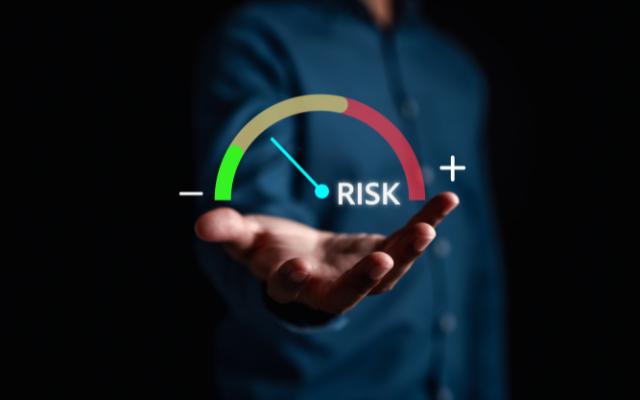
While the Vietnam property market trends are strong, it would be unwise to ignore the risks.
Some analysts strongly caution foreign buyers due to the leasehold system and lack of full land ownership rights.
Some new "off-plan" projects can be delayed or abandoned.
How to Avoid: Your lawyer must vet the developer's track record and financial guarantee for the project, commonly referred to as the "Bao Lanh."
Never use a lawyer recommended by the developer.
The government is expected to renew leases, but this is not guaranteed for the distant future.
How to Mitigate: This is an inherent risk of the leasehold system in Vietnam. Understand that you are purchasing the right to use the property for a considerable period, not indefinitely.
A property can be listed with multiple agents at different prices and with varying details.
How to Avoid: Rely only on the information your independent lawyer verifies by checking the official ownership documents. Cross-reference everything.
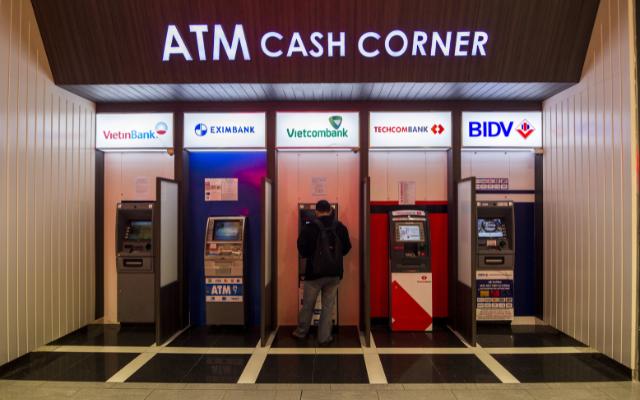
These are two of the most common questions from foreigners, and it's essential to have clear expectations.
First, regarding financing, obtaining a mortgage in Vietnam as a non-resident is challenging, but not impossible.
Your chances are better if you have a work permit and earn a local income, are married to a Vietnamese citizen, or approach an international bank operating in Vietnam, such as HSBC or UOB.
Expect higher interest rates and a larger down payment requirement, typically at least 30%.
Second, regarding residency: Vietnam does not have a "Golden Visa" or direct residency-by-investment program tied to real estate.
Buying property does not grant you the right to live in the country.
You must still secure the appropriate visa (work, business, or family-sponsored) based on your circumstances.
Simply put, a Vietnam property visa linked to your purchase does not exist.
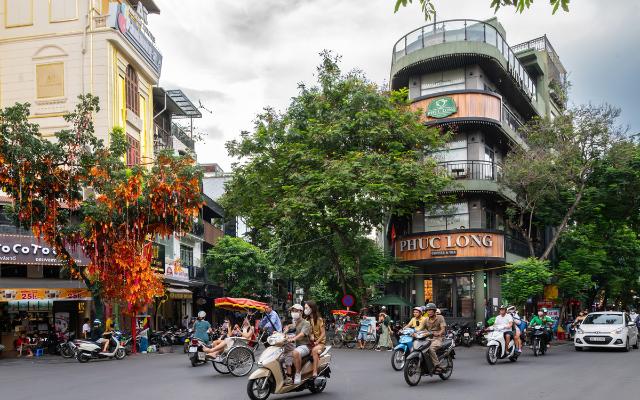
Navigating the path to buying property in Vietnam is undoubtedly an adventure.
The landscape is filled with incredible opportunities, from the bustling economic hubs of Hanoi and Ho Chi Minh City to the stunning coastal retreats in Da Nang.
However, it's a journey that demands caution and preparation.
Success hinges on understanding the unique leasehold system and partnering with a trustworthy legal expert to guide you.
With due diligence and a clear-eyed view of the rules, your dream of a Vietnamese home can become a safe and rewarding reality.
Under the current law, you can apply for an extension for one additional term of up to 50 years. This process should be initiated at least three months before the expiration of the initial term. If you don't apply for an extension or sell the property, it will revert to state ownership.
Yes. You only need to be a foreign national permitted to enter Vietnam to purchase property. This means as long as you have a valid passport with a legal entry stamp, you are eligible to sign a purchase agreement. You do not need a long-term residency card to make a purchase.
If you rent out your property, your income is subject to a 5% VAT and a 5% Personal Income Tax. When you sell, the capital gains tax is a flat 2% of the total transaction value.
For a single residential property, buying as an individual is usually more straightforward. Setting up a company to buy property is a more complex route typically used for larger-scale or commercial investments.
Historically, the "Red Book" certified land use rights, while the "Pink Book" certified ownership of the house. Today, the modern "Pink Book" (Sổ Hồng) is a unified document that certifies both the ownership of the house and the rights to use the associated land. This is the document you will receive.
Yes, U.S. citizens can purchase property in Vietnam. The laws and regulations regarding foreign property ownership are generally uniform and apply to all foreigners, regardless of nationality. There are no special rules for Americans.
Look for established agencies with a strong presence (like Savills or IQI Vietnam), ask for recommendations from expat forums, and always check that their agents hold official brokerage certificates. The best approach is often to have your independent lawyer recommend or vet an agent for you.
Ready to turn your Vietnam dream into a reality? Let Juwai Asia transform complexity into confidence. Explore exclusive, verified properties and connect with our expert on the ground to find your perfect home, safely and securely!
Reference and Citation